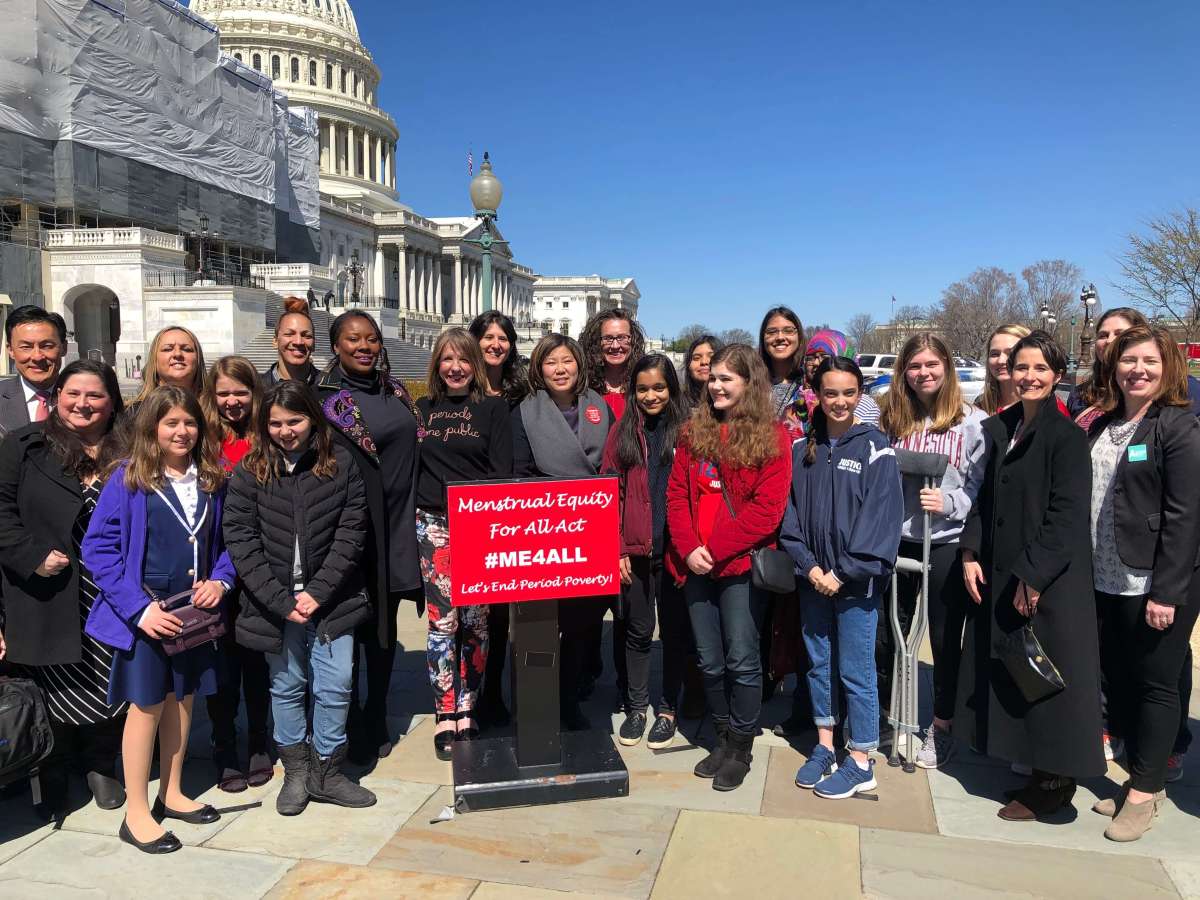Congresswoman Grace Meng on Tuesday introduced the Menstrual Equity for All Act, the first comprehensive bill to address the different challenges that women and girls face in affording and accessing menstrual hygiene products.
According to Meng, menstruation hygiene items, such as pads, tampons, cups and liners, are necessary purchases for the vast majority of women.
“Popular culture would have you believe these products are ubiquitous and cheap, but many women face difficulty when it comes to affording and accessing them,” said Meng. “We live in the richest nation and yet millions of women and girls suffer from issues of access and affordability. We want women to succeed and advancing menstrual equity is critical to reach this goal.”
It’s estimated that up to 86 percent of women use tampons, up to 72 percent use pads, and 75 percent use pantyliners. Most premenopausal women use menstrual hygiene products on a monthly basis and it is estimated that a woman will use up to 16,000 tampons in her lifetime. Regardless of income, women spend a significant amount of money on purchasing menstruation hygiene products each year.
Beyond being cost-prohibitive, different populations of women and girls may face challenges in accessing menstrual hygiene products.
The Menstrual Equity for All Act aims to address these challenges by:
- Giving states the option to use federal grant funds to provide students with free menstrual hygiene products in schools – these grants already provide funding for health and wellness efforts;
- Ensuring that incarcerated individuals and detainees in federal (including immigration detention centers), state, and local facilitates have access to free, unrationed, menstrual hygiene products;
- Ensuring that no visitor is prohibited from visiting an incarcerated individual due to the visitor’s use of menstrual hygiene products;
- Allowing homeless assistance providers to use grant funds that cover shelter necessities (such as blankets and toothbrushes) to also use those funds to purchase menstrual hygiene products;
- Allowing individuals to use their own pre-tax dollars from their health flexible spending accounts to purchase menstrual hygiene products;
- Requiring that Medicaid covers the cost of menstrual hygiene products for recipients;
- Directing large employers (with 100 or more employees) to provide free menstrual hygiene products for their employees in the workplace; and
- Requiring all public federal buildings, including buildings on the Capitol campus, provide free menstrual hygiene products in the restrooms.
Dana Marlowe, founder and executive director of I Support The Girls, said the reintroduction of the Menstrual Equity for All Act of 2019 by Meng will correct the inequity and allow all women to maintain their dignity and self-respect.
“Period poverty isn’t just a monthly issue facing the 180,000 women living on the streets of our nation,” said Marlowe. “It extends to jails, the workplace, federal buildings and high schools, where women are denied free access to menstrual products.”
Dr. Marni Sommer, associate professor at Columbia University’s Mailman School of Public Health, said the legislation tackles some of the key challenges that girls, women and people who menstruate face here in the U.S.
“I’d challenge us to go further in the coming years, to go beyond products, which although essential are only one component of achieving menstrual equity,” said Sommer. “In research underway with low-income girls in the U.S., we are hearing stories of bathrooms that lack toilet paper, leaving them nothing to manage with if they get their period unexpectedly and lack a pad; stories of toilet stalls that lack working locks, impacting their ability to manage their periods in privacy; and stories of totally absent or inadequate menstrual education being provided in schools. We can do better.”
































